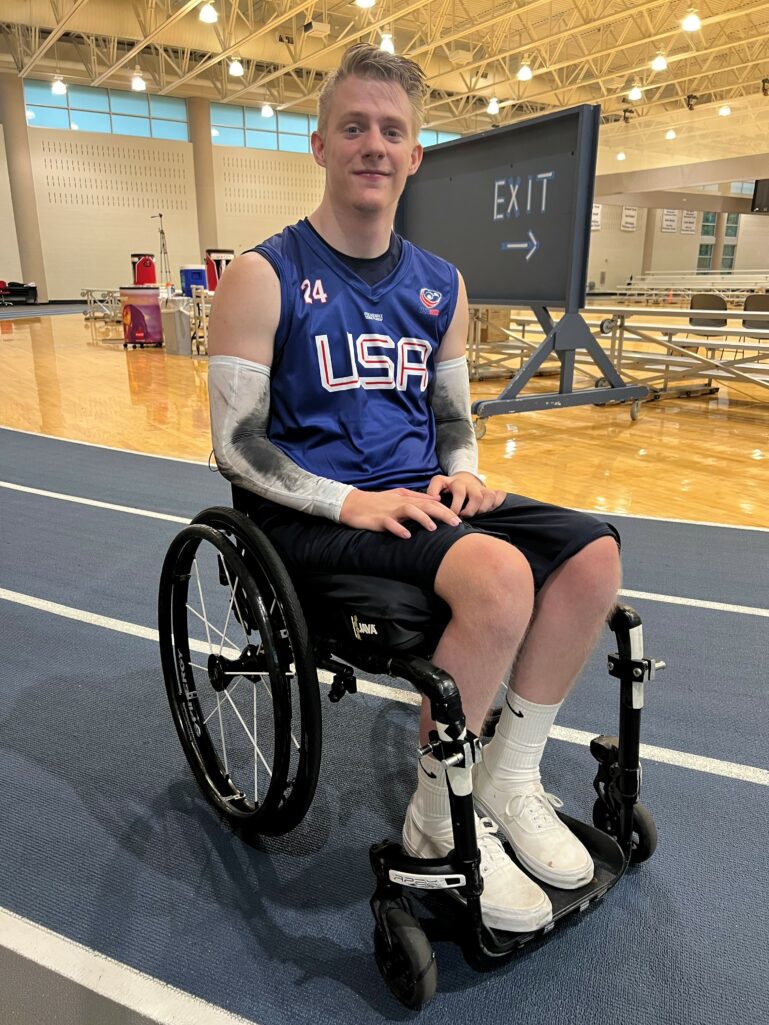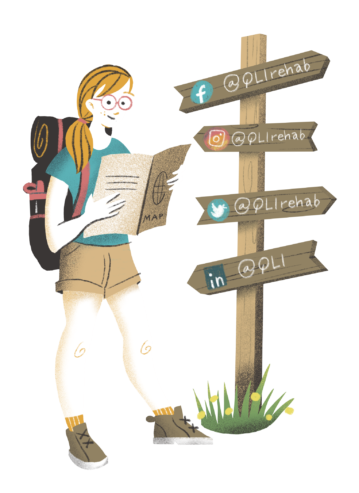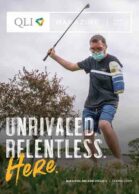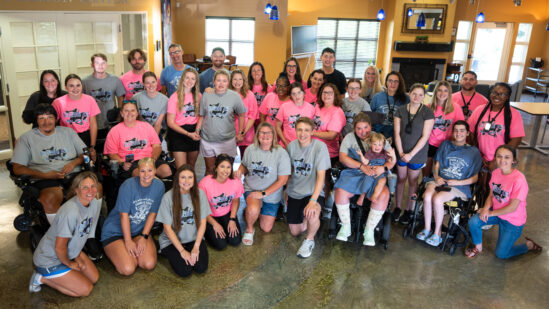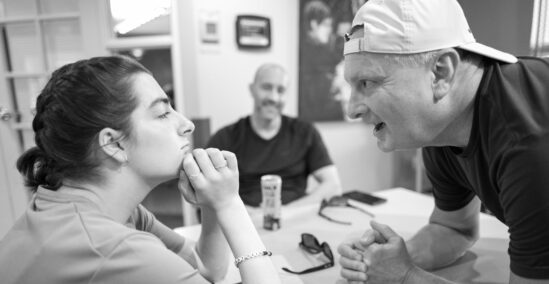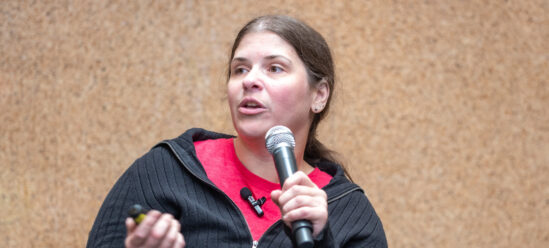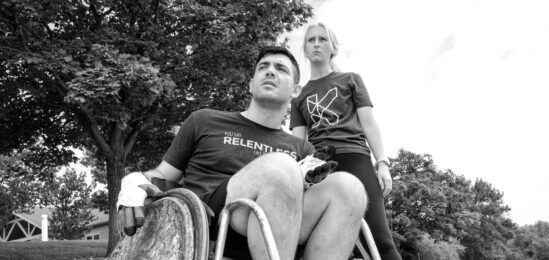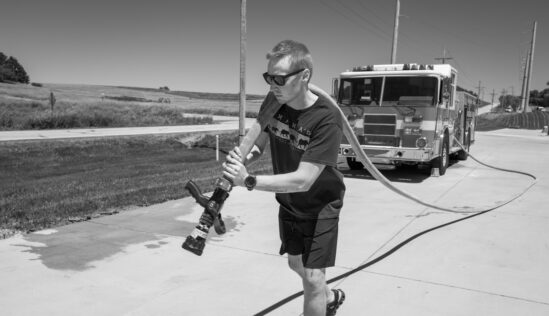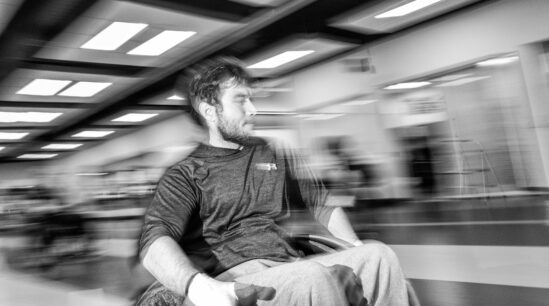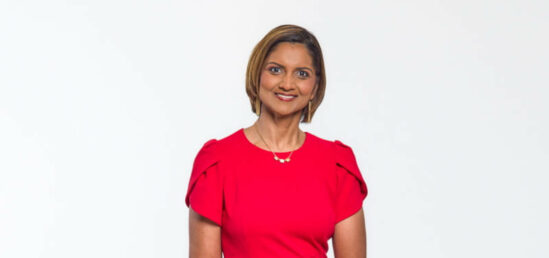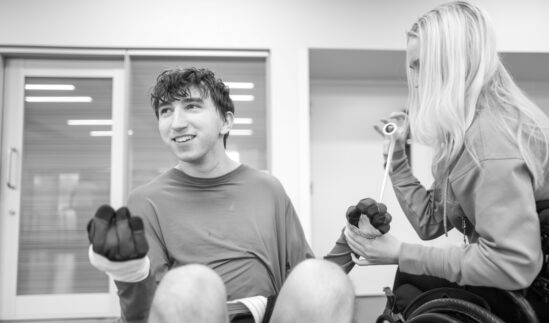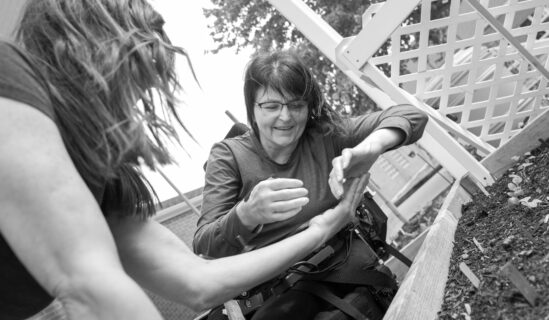“It’s all gas, no brakes. A true nose to the grindstone experience.” Going into the wheelchair rugby training camps in places like Birmingham, AL can be utterly brutal. For a week and a half, players complete a series of skill tests—pushing the boundaries of endurance: sprint times, then mile times, all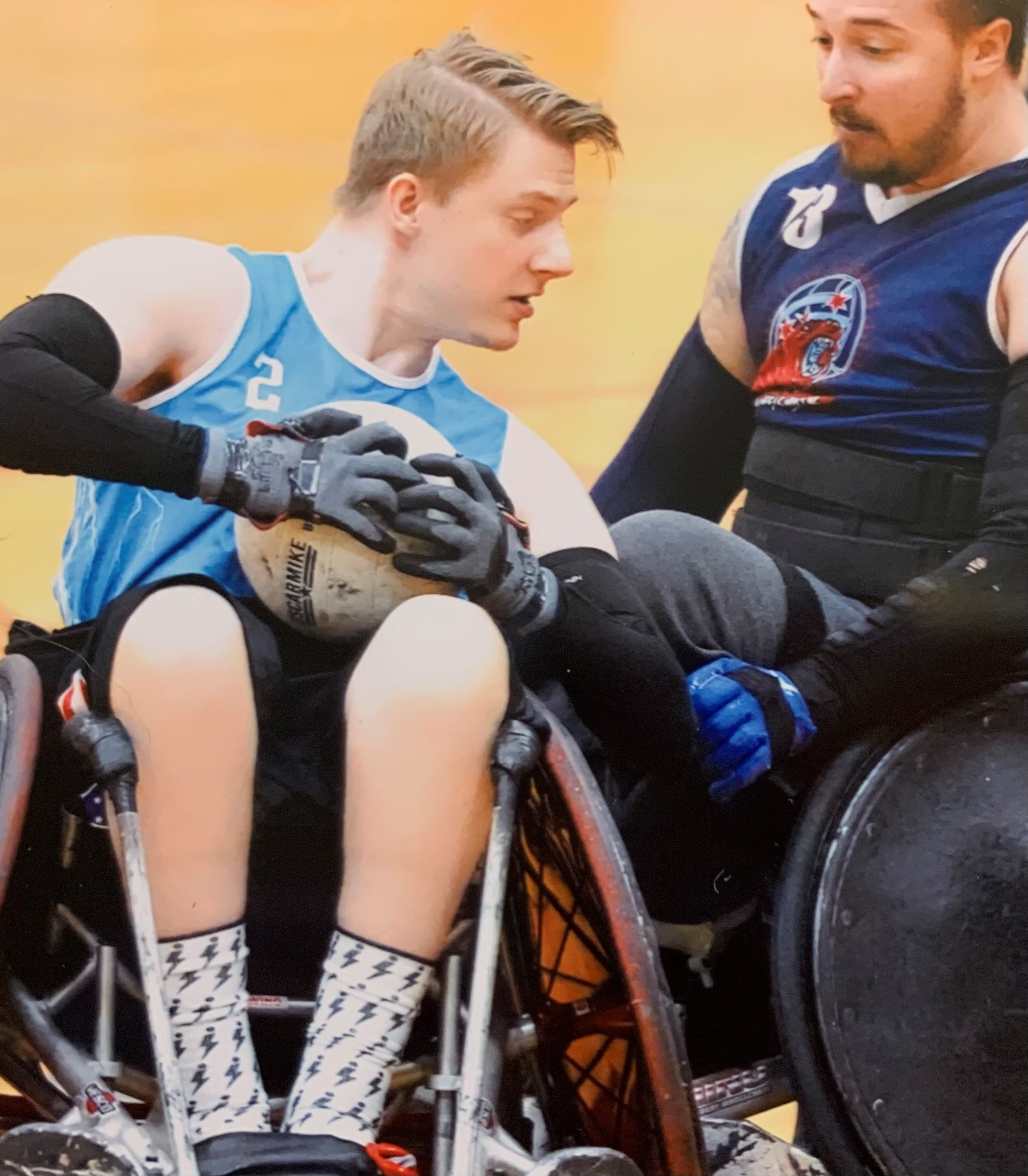 for a chance at getting on the roster. If you do get a coveted spot on the US national team, your life becomes all about boot camps, continual meetings, and gearing up for international competitions. This is daunting for the average individual, but for an athlete like Marty Ewing, it’s a welcome challenge. He expects nothing less.
for a chance at getting on the roster. If you do get a coveted spot on the US national team, your life becomes all about boot camps, continual meetings, and gearing up for international competitions. This is daunting for the average individual, but for an athlete like Marty Ewing, it’s a welcome challenge. He expects nothing less.
__
When he graduated from QLI’s inpatient rehabilitation program in 2019, Marty’s future was certainly bright. The onus was naturally on him to further the abilities he had fostered while on campus. Marty’s spinal cord injury came at a time in his life that was rife with opportunity. That aspect did not fade when his rehabilitation began.
QLI Life Path Specialist Jack Mahaffey recalls being struck by this promising attitude when he first met Marty at Shirley Ryan Ability Lab in Chicago, IL. “Marty was a bit lost and looking for something,” remembers Jack. “he had this great competitive spirit which needed a release.” Marty attended the University of Indiana on a baseball scholarship but his injury forced him to consider alternatives. “We went through a few baseball exercises before it was clear baseball would not be it for him,” says Jack. Leaving behind the sport he loved and looking into others required a great deal of tenacity. Marty was open to whatever would come.
“I can’t even begin to imagine where I would be if I never went to QLI.” Marty thinks back to his state after arriving on campus when actions like transferring independently out of his bed seemed impossible. An athlete knows that the ultimate end goal is built off of the success of much smaller ones. Marty embraced this philosophy.
It was a learning experience for both of them, as Jack had only started to pursue wheelchair rugby shortly before Marty’s arrival, with client Seth Wannamaker. Together they built exercises and routines, finding resources to help guide the process. Seth was right there in the early stages as he became a QLI peer mentor following his own graduation from the spinal cord injury rehabilitation program—motivating and pushing him. Eventually, Jack got in contact with the coach of the Chicago Bears wheelchair rugby team. The expectation was, at first, to simply see if there was a way for Marty to be involved with the team after he was discharged back home to the Chicagoland area.
The coach reached back out, inviting Marty to a game. Already planning to return home for a few days during the Thanksgiving holiday, not only did Marty have the opportunity to attend the game but he had a chance to play in it. “Before he discharged,” says Jack, “he was able to get classified by the coaches—knowing the role he could play 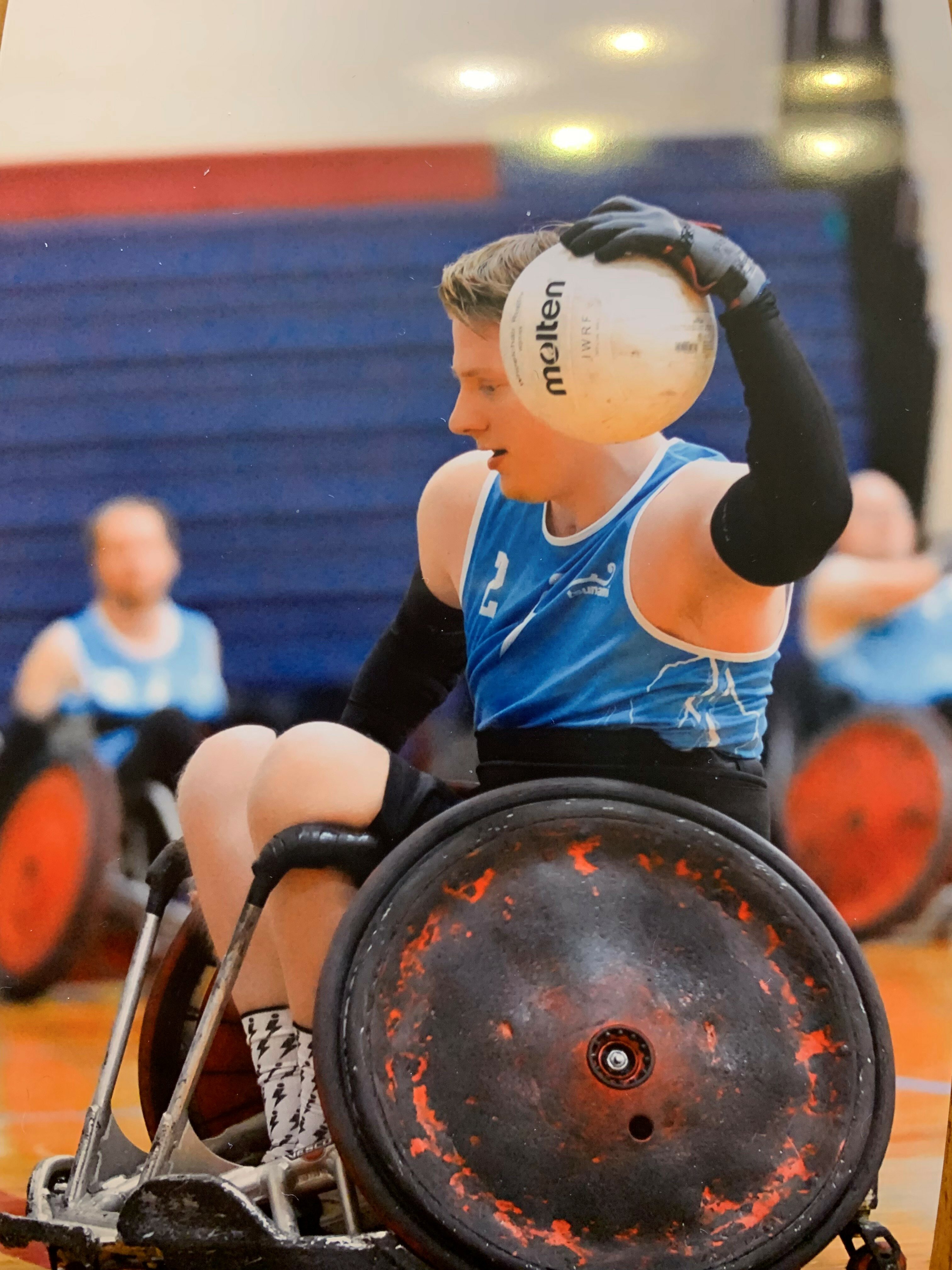 on the team.” Not only did this opportunity give Marty a great place to grow and excel after leaving QLI, but the dialogue that opened between the coaches and QLI meant that the Adaptive Sports program could be better informed in both introducing and guiding clients through the sport.
on the team.” Not only did this opportunity give Marty a great place to grow and excel after leaving QLI, but the dialogue that opened between the coaches and QLI meant that the Adaptive Sports program could be better informed in both introducing and guiding clients through the sport.
Marty did not stop at excelling on the Chicago team, and now holds a spot on the US national team. He has aspirations to someday make the Paralympic team and compete in a future Paralympic Games.
And he returned to college. He began with online classes, and then transitioned to the nearby Indiana University Northwest Campus in Gary, IN. The chosen field—psychology—with the hope of studying occupational therapy upon the completion of his undergraduate degree in 2024. Wherever that path takes him, wheelchair rugby will follow.
“It’s in the value that someone with a similar experience to you has,” says Marty. “Learning in a clinical setting is great, but just as important is hearing about how others like me have navigated hurdles. I want to be that person for others, combining clinical skills with personal experience.” And he already is, staying in touch with Jack and other clinicians. Marty Zooms into sessions with new QLI as clients with similar injuries to him who are just starting to feel at home and at ease in the rugby wheelchairs. He’ll watch them move through a series of exercises, offering advice and a crucial perspective.
“When they talk with him,” notes Jack, “clients can see the living proof that life doesn’t end after injury. They can still dream big, it’s just a matter of how to go about doing it.”
Marty’s future is still moving forward. At the same time, a legend of sorts grows around him, and with those that follow. Marty is, in many respects, the standard, the lodestone. He is the person that his peers, as they progress through their injury recovery, aspire to emulate. Marty is the proof.
